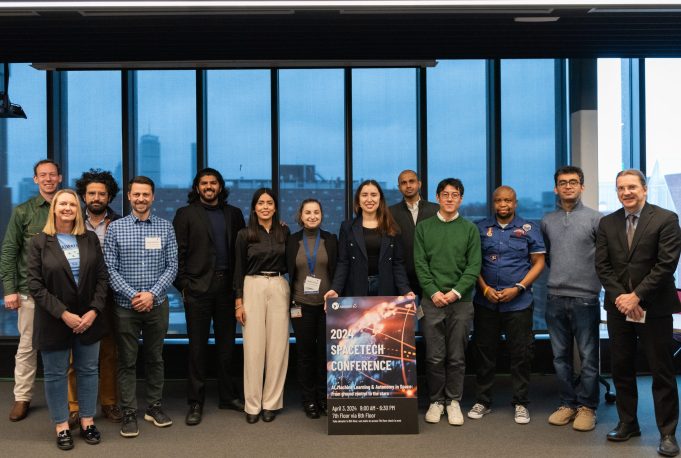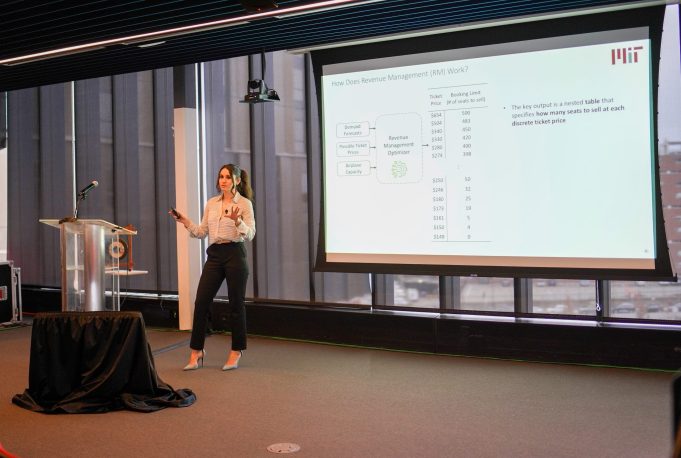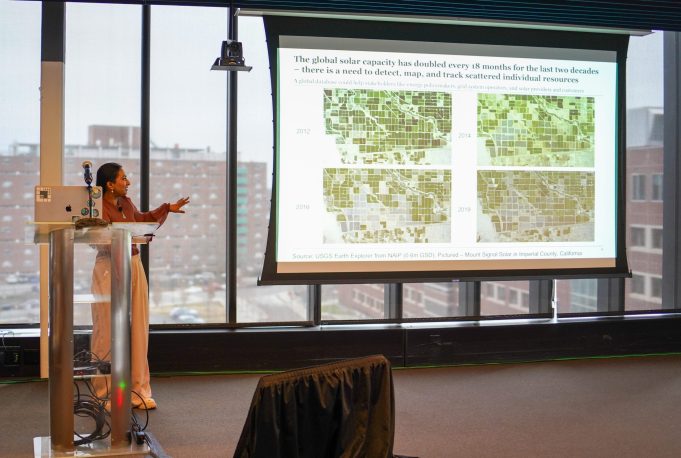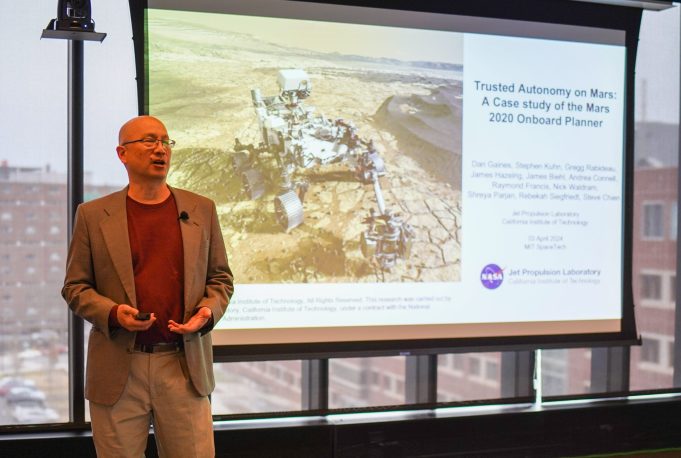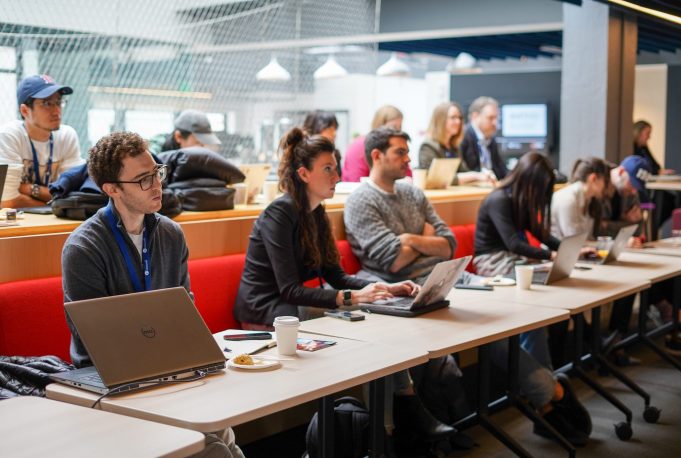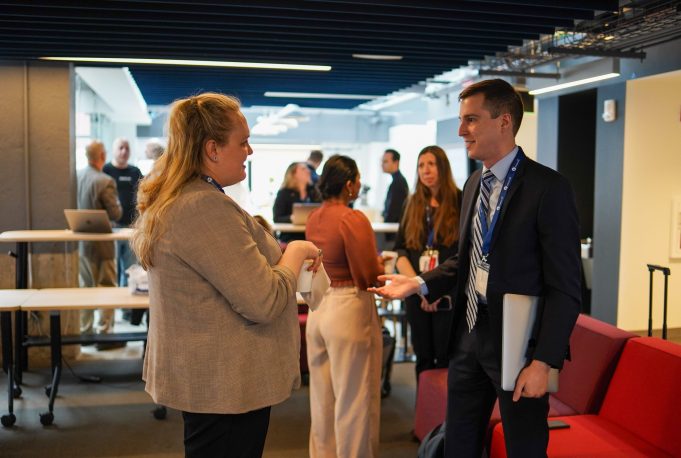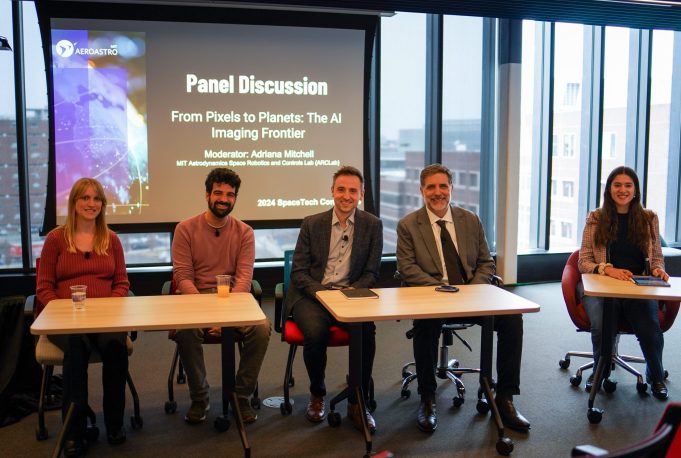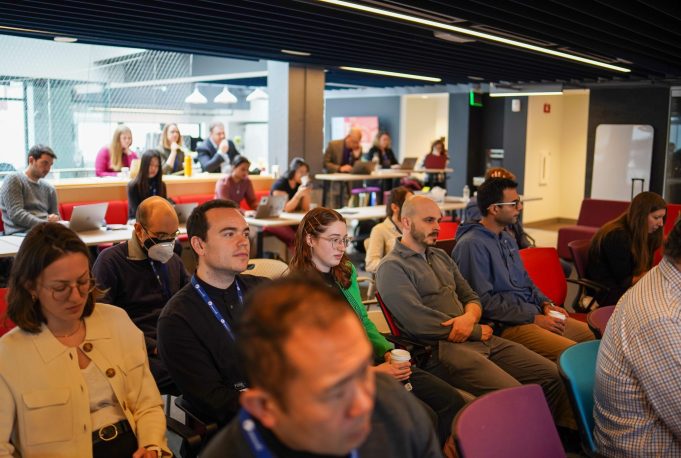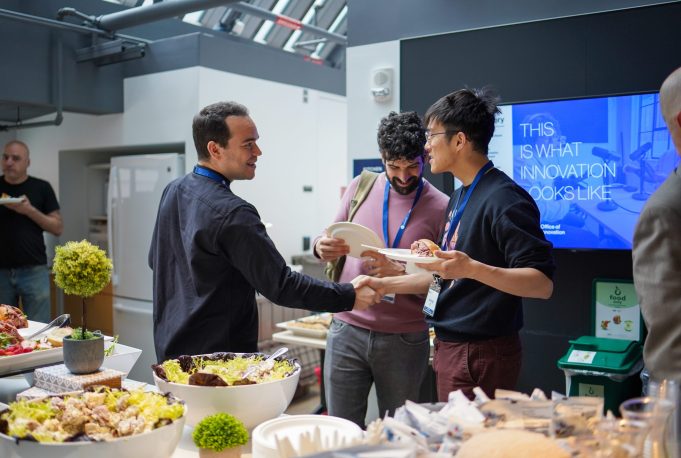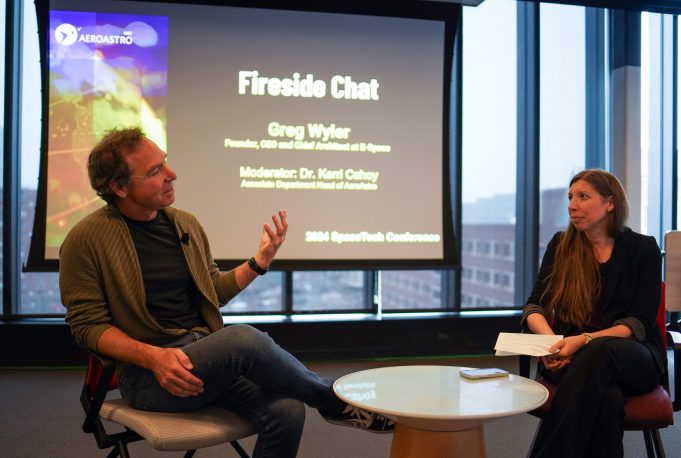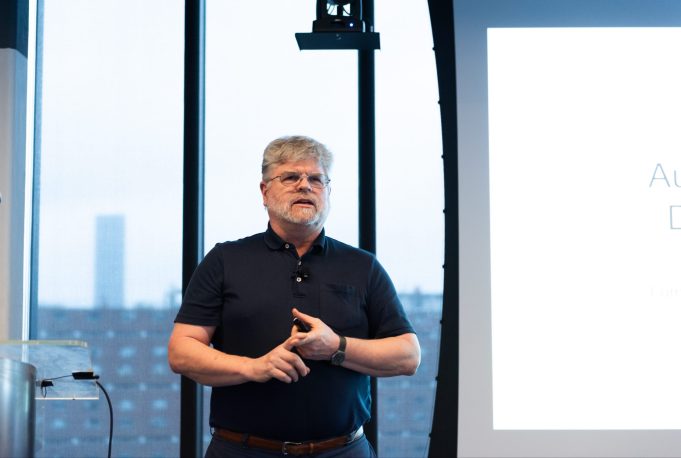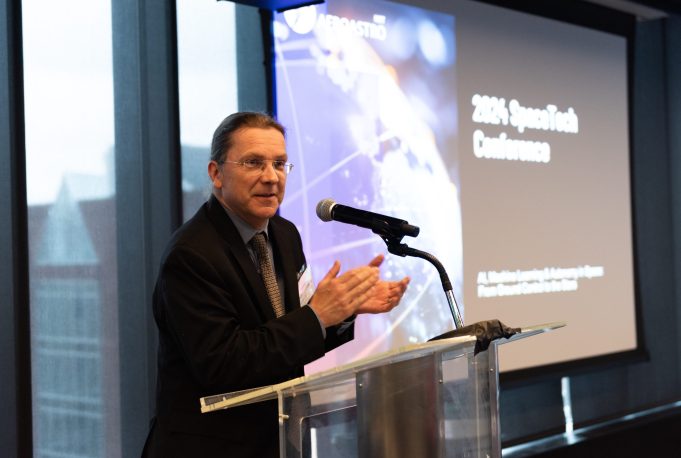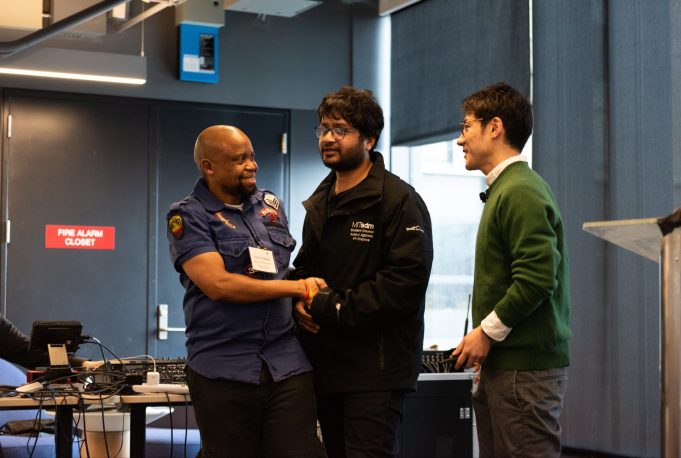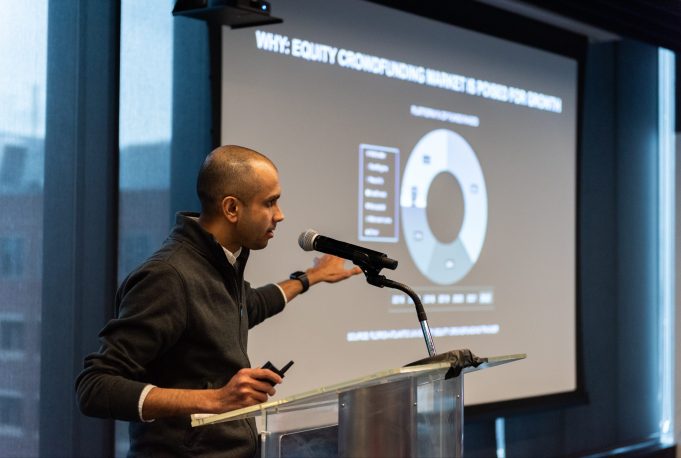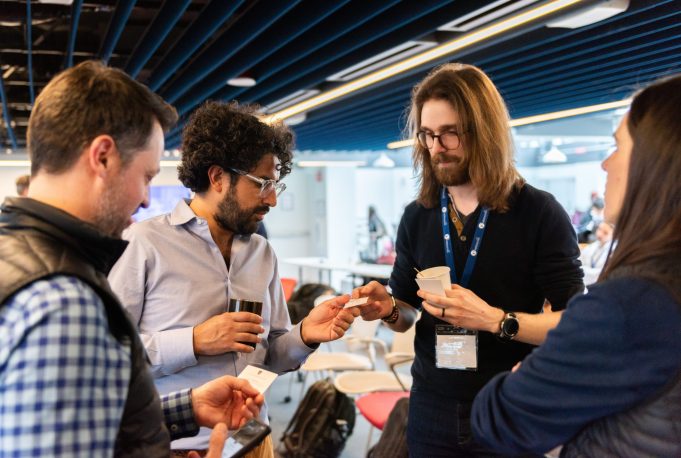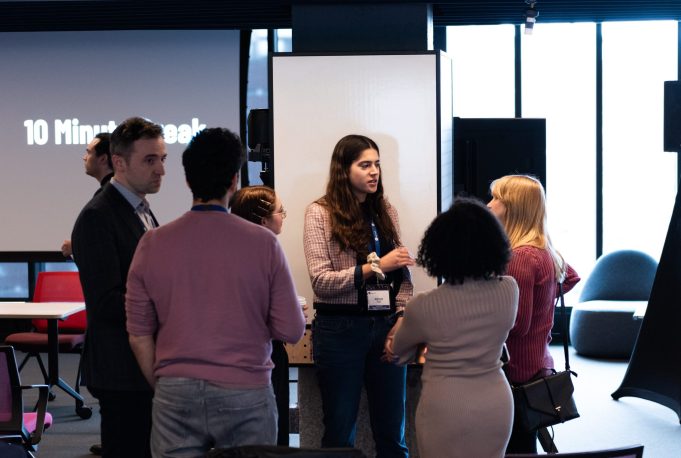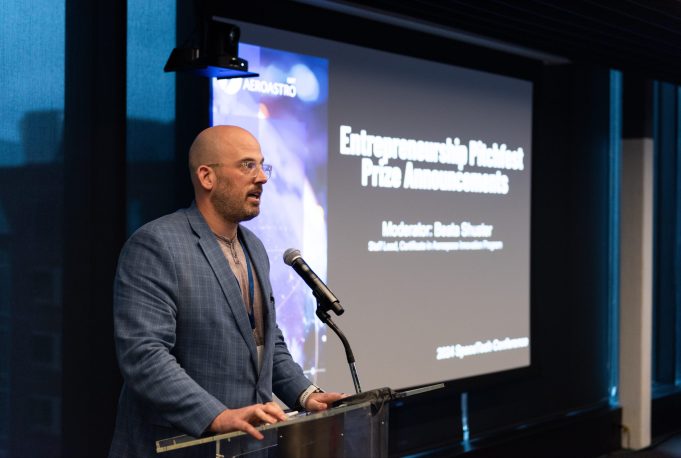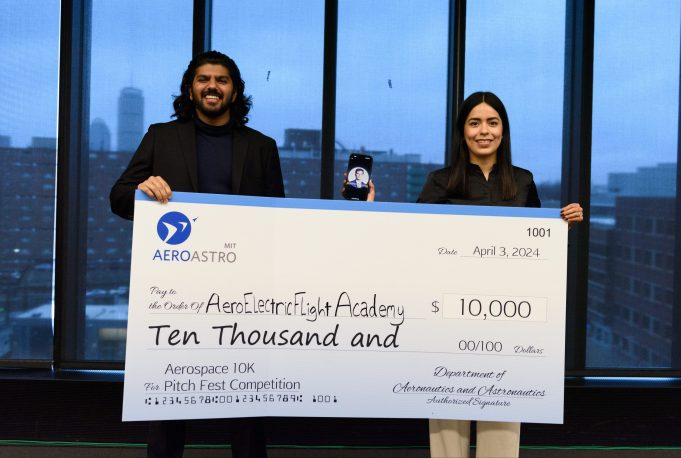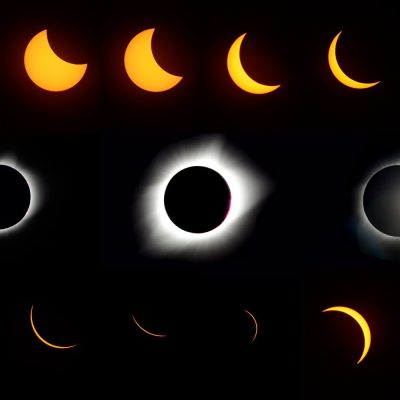SpaceTech 2024 explores the future of space technology
The 2024 MIT AeroAstro SpaceTech Conference this April explored the future of space technology and the ways AI and machine learning are impacting research, industry, and policy in space.
This year’s event, “AI, Machine Learning, and Autonomy in Space: From Ground Control to the Stars,” featured keynote speakers from NASA JPL and MIT CSAIL, and panelists from Planet, Draper, and U.S. Space Force. The event included panel discussions with leading experts in the field, as well as an entrepreneurship pitchfest competition that awarded $10,000 to the winning MIT-based startup.
Dr. Steve Chien, NASA JPL Technical Group Supervisor for the AI Group, and Professor Brian Williams each gave keynote addresses on the past, present, and future of autonomous space technology. In a fireside chat, Professor Kerri Cahoy and Greg Wyler, Founder, CEO and Chief Architect at E-Space, discussed the needs, challenges, and opportunities in global access to satellites.
Panel discussions included “Pixels to Planets: The AI Imaging Frontier,” moderated by Adriana Mitchell (ARCLab) and “AI for Peace and Security in Space,” moderated by Thomas González Roberts (ARCLab). Both panels featured experts from across the aerospace sector.
Students engaged in a competition round of lightning talks. Billy Kline (ESL), Julia Briden (ARCLab), Skylar Eiskowitz (ESL), Ryan de Freitas Bart (ESL), and Rashmi Ravishankar (ESL) each delivered five-minute presentations about their research. Skylar was selected as the winner for her presentation, “Will the Algorithms Behind Changing Airline Ticket Prices Close the Business Case for Satellite Communication Networks?”
Six teams from across the Institute competed in the Aerospace $10K Entrepreneurship Competition, sponsored by the MIT AeroAstro Certificate in Aerospace Innovation. Teams pitched innovative ideas for aerospace industry startups, addressing challenges like space station cleanliness and how to use robots to ensure human safety in space. The AeroElectric Flight Academy took first place in the competition with their pitch for a flight school focused on training future pilots on electric aircraft.
Special thanks to Mark Munson, Program Manager for the MIT AeroAstro Small Satellite Collaborative, for spearheading a successful event!
SpaceTech is part of MIT Space Week, alongside events from the Media Lab and MIT Sloan School of Business.
